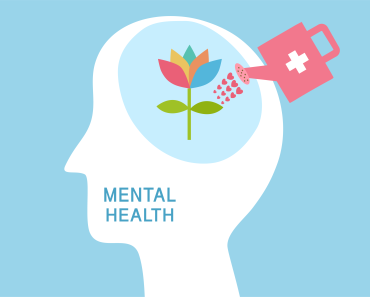In recent years, gluten-free diets have surged in popularity, with many people adopting this dietary approach for various health reasons. Originally intended for individuals with celiac disease, gluten-free diets are now embraced by those with gluten sensitivities and even by people who believe it promotes better health. This article explores the reasons behind the gluten-free trend, the benefits and challenges of such a diet, and tips for successfully maintaining a gluten-free lifestyle.
What is Gluten?
Gluten is a protein found in wheat, barley, rye, and their derivatives. It gives dough its elasticity and helps it rise and maintain its shape. Gluten is commonly found in bread, pasta, cereals, and many processed foods. For most people, gluten is harmless, but for those with celiac disease or gluten sensitivity, consuming gluten can lead to serious health issues.

Celiac Disease and Gluten Sensitivity
Celiac Disease is an autoimmune disorder where the ingestion of gluten leads to damage in the small intestine. It affects approximately 1% of the population. Symptoms can include abdominal pain, bloating, diarrhea, and malnutrition. For those with celiac disease, a strict gluten-free diet is essential to prevent long-term health complications such as osteoporosis, infertility, and neurological disorders.
Non-Celiac Gluten Sensitivity (NCGS) affects a larger portion of the population. While these individuals do not have the same intestinal damage as those with celiac disease, they may experience symptoms like bloating, fatigue, and headaches after consuming gluten. For them, avoiding gluten can significantly improve their quality of life.
The Rise of Gluten-Free Diets
The popularity of gluten-free diets has extended beyond those with celiac disease or NCGS. Many people adopt gluten-free eating for perceived health benefits, believing it can lead to weight loss, increased energy, and improved digestion. This trend has been fueled by celebrity endorsements, books, and media coverage highlighting the potential benefits of a gluten-free lifestyle.
Benefits of a Gluten-Free Diet
Improved Digestive Health: For those with celiac disease or NCGS, eliminating gluten can relieve symptoms like bloating, gas, and diarrhea.
Increased Energy Levels: Some people report feeling more energetic and less fatigued after removing gluten from their diet.
Better Nutrient Absorption: For individuals with celiac disease, healing the gut by avoiding gluten can improve nutrient absorption and overall health.
Reduced Inflammation: A gluten-free diet may help reduce inflammation, particularly in those who are sensitive to gluten.
Challenges of a Gluten-Free Diet
Nutritional Deficiencies: Gluten-containing grains are rich in essential nutrients like fiber, iron, and B vitamins. Eliminating these grains can lead to deficiencies if not carefully managed.
Limited Food Choices: Following a gluten-free diet requires avoiding many common foods, which can make eating out or traveling challenging.
Cost: Gluten-free products often come with a higher price tag compared to their gluten-containing counterparts.
Cross-Contamination: Even small amounts of gluten can cause symptoms in those with celiac disease, making it important to avoid cross-contamination in food preparation.
Tips for a Successful Gluten-Free Diet
Educate Yourself: Learn about which foods contain gluten and read labels carefully. Gluten can be hidden in sauces, soups, and processed foods.
Focus on Whole Foods: Base your diet on naturally gluten-free whole foods like fruits, vegetables, meat, fish, and dairy.
Find Gluten-Free Alternatives: Many gluten-free products are available, including bread, pasta, and snacks. Look for certified gluten-free labels.
Plan Your Meals: Planning ahead can help ensure you have gluten-free options available, especially when eating out or traveling.
Watch for Cross-Contamination: Be mindful of cross-contamination at home and in restaurants. Use separate utensils, cutting boards, and toasters.
Consult a Dietitian: A registered dietitian can help you create a balanced gluten-free diet and address any nutritional gaps.
The gluten-free diet is a crucial intervention for those with celiac disease and beneficial for individuals with gluten sensitivity. While it can be challenging to navigate, careful planning and education can help ensure a healthy, balanced diet. For those considering a gluten-free lifestyle without a medical necessity, it’s important to weigh the potential benefits against the challenges and consult with a healthcare professional.
The growing availability of gluten-free products and increased awareness of gluten-related disorders have made it easier than ever to maintain a gluten-free diet. Whether for medical reasons or personal choice, embracing a gluten-free lifestyle can lead to improved health and well-being for many individuals.






